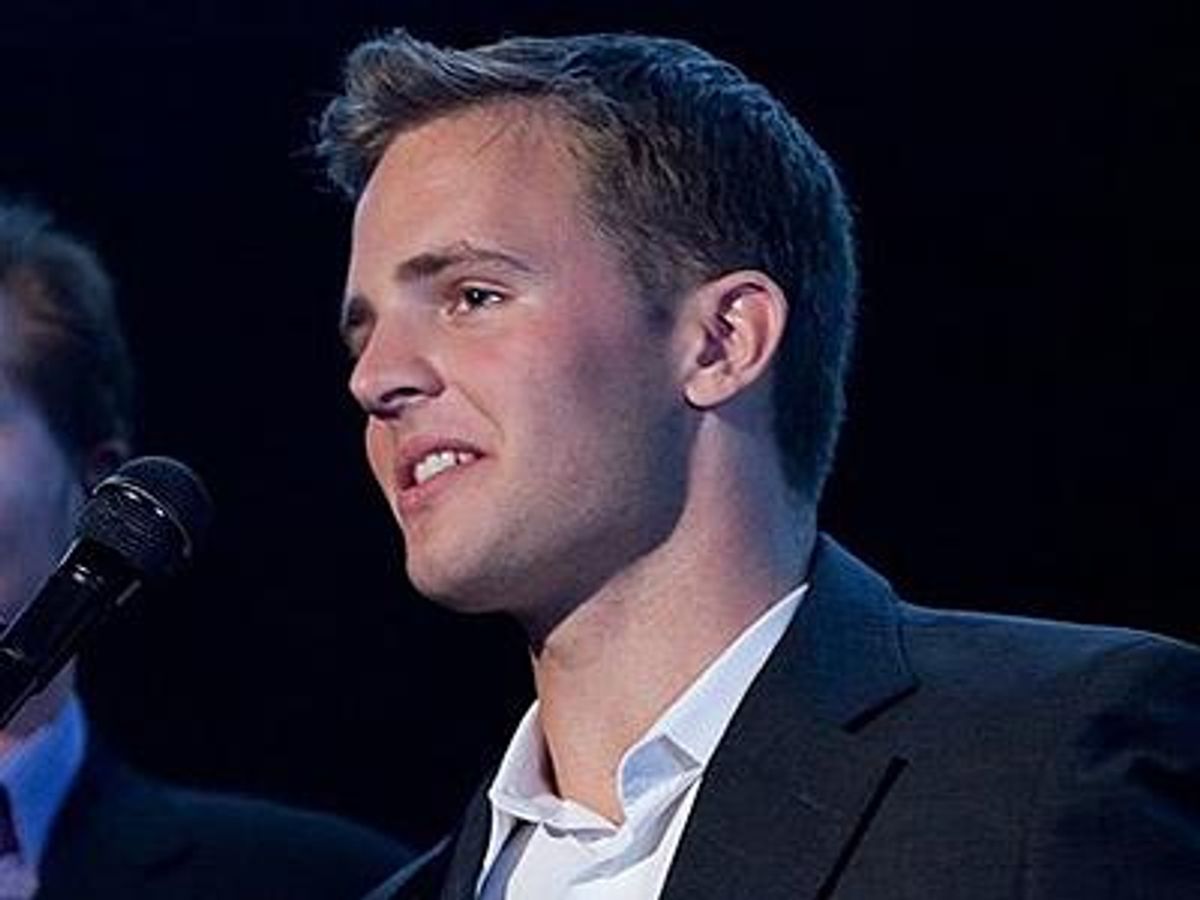Back in January, I got the incredible opportunity and honor to join the board of directors of Outfest, the organization that runs, among other things, the leading LGBT film festival in the United States and around the world. It was a particularly amazing and surreal experience, considering that it was an Outfest movie, The Trip, which was included as part of the festival's lineup back in 2002, that had singlehandedly inspired me to come out back when I was 14 years old.
After everything that Outfest had done for me, I wanted to give back. The organization was looking for a young person who could come on and help try and bring other young LGBT people into the Outfest fold. I was extremely excited about it, as I knew from personal experience how powerful film could be, especially in terms of giving us young people the hope and courage they need to be proud and outspoken about who they are.
After I officially got on board, I got increasingly pumped up and enthusiastic as the festival got closer and closer. I was particularly looking forward to a showing of Making Love that was scheduled for the second night. It was the film's 30th anniversary, and Harry Hamlin as well as the director and writers were due to attend the screening. Making Love had an enormous impact on me as a teenager, and I couldn't wait for the chance to thank the people who made it for what they did for me.
I mentioned to all the young people I knew what an amazing film Making Love was, and how I really encouraged them and wanted them to attend if they could. After all, this was the first gay-themed studio film ever; it was historic, and I thought it would be great if we could all show up, show our support, and show the older people there that we appreciate our community's history and appreciate the hard work our forefathers did for us on the road to equality.
When I got there that night, I didn't see any of my peers in the audience. Now, I don't recount this story to criticize young people or talk down to them; I do recount it, however, because I think it raises some interesting questions, questions that I've asked myself for awhile now about the broader LGBT community we live in. I think it raises the question of why many youth who came to Outfest saw some of the other films instead, films such as Gayby, a sex comedy about a man who has a baby with his female best friend, and Young & Wild, about a young girl and her sexual escapades, as opposed to some of the more politicized, history-related material.
The answer, from what I can tell, is this: They don't feel the older films relate to them. They don't feel that the political battles and identity-driven movements of the past have an impact in their lives today, that they are relevant to the current experience of what it means to be an LGBT man or woman in America. Personally, I think it would be a tragic mistake if we lost sight of our heritage, of what makes us "the LGBT community."
Things may be better, but there are still many fights to be fought, and until we achieve the dream of full equality, we cannot allow ourselves to fall for the idea that we live in a post-gay era, because we don't, and we won't unless we remain passionate, remain proud, and remain aware of the gay people who came before us and what they did for us. If there's one mission over the next few years that I have as an Outfest board member, it's to convince the youth out there across America to see those films, learn about their past and appreciate the culture and community that has come before them. It changed my life, and I know it'll change theirs.
One of my heroes, Larry Kramer, said the following in a speech to a group of young gay men back in 2004: "Grow up. Behave responsibly. Fight for your rights. Take care of yourself and each other. Be proud of yourself. Be proud you are gay." It may sound corny, but I think that's what my generation needs to do in order to stay strong, and sometimes I worry that we're not doing it.
To the young readers out there: What does being a young gay person in America mean to you? Do you think the gay community as we've fought for it is disappearing, and if so, is that a good thing? And do you think that's what our gay brothers and sisters fought for as they were being spit on while marching in the streets 40 years ago? Give me your thoughts, because this is a dialogue that will determine who we are and who we will become in our future.

















































































Viral post saying Republicans 'have two daddies now' has MAGA hot and bothered